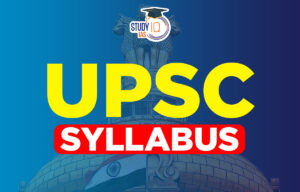Current Affairs 21st August 2023 for UPSC Prelims Exam
Public Tech Platform for Frictionless Credit
Context: The Reserve Bank of India announced the launch of the Public Tech Platform for Frictionless Credit (PTPFC) pilot project.
About the Public Tech Platform for Frictionless Credit (PTPFC)
- The PTPFC has been created by the Reserve Bank Innovation Hub (RBIH), a wholly owned subsidiary of the central bank.
- The fully owned Subsidiaries of RBI include the following:
- Deposit Insurance and Credit Guarantee Corporation of India (DICGC),
- Bharatiya Reserve Bank Note Mudran Private Limited (BRBNMPL),
- Reserve Bank Information Technology Private Limited (ReBIT),
- Indian Financial Technology and Allied Services (IFTAS), and
- Reserve Bank Innovation Hub (RBIH).
- The fully owned Subsidiaries of RBI include the following:
- The aim of the pilot project is to connect borrowers and lenders, which will make credit more accessible to millions of individuals looking for small loans.
- The PTPFC will be enabling the disbursal of non-collateral-based loans for Micro, Small and Medium Enterprises (MSMEs), Kisan Credit Card loans up to Rs 1.6 lakh, dairy loans, personal loans, and home loans.
How RBI’s PTPFC works?
- It will have an open architecture, open Application Programming Interfaces (API) and standards, to which all financial sector players would be able to connect seamlessly in a ‘plug and play’ model.
- An open API, also called public API, is an application programming interface made publicly available to software developers.
- Open APIs are published on the internet and shared freely, allowing the owner of a network-accessible service to give universal access to consumers.
- The digital platform allows central and state government entities, banks, credit information companies, and digital identity authorities to share information.
- This allows the various stakeholders in the lending process to collate the data for each borrower faster leading to speedier processing of loan requests.
- Apart from faster dispersion of loans to borrowers, the digital platform will help in reducing costs while increasing transparency, efficiency, and scalability.
Current Affairs 19th August 2023 for UPSC Prelims Exam
BRICS and Significance for India
Context: Prime Minister will be visiting South Africa for the BRICS Summit to be held from August 22 to 24 in Johannesburg.
What is BRICS?
- Definition: BRICS is an acronym for the grouping of the world’s leading emerging economies, namely Brazil, Russia, India, China, and South Africa.
- Establishment: In 2001, the British Economist Jim O’Neill coined the term BRIC to describe the four emerging economies of Brazil, Russia, India, and China.
- The grouping was formalised during the first meeting of BRIC Foreign Ministers’ in 2006.
- South Africa was invited to join BRIC in December 2010, after which the group adopted the acronym BRICS.
- Share of BRICS: The BRICS brings together five of the largest developing countries of the world, representing 41% of the global population, 24% of the global GDP and 16% of the global trade.
- Chairmanship: The chairmanship of the forum is rotated annually among the members, in accordance with the acronym B-R-I-C-S.
- India was the chair for 2021.
Initiatives By BRICS:
- New Development Bank: During the Sixth BRICS Summit in Fortaleza (Brazil) in 2014, the leaders signed the Agreement establishing the New Development Bank (NDB – Shanghai, China).
- Contingent Reserve Arrangement:
- In 2014, the BRICS governments had signed a treaty on the setting up of the contingent reserve arrangement.
- The arrangement is aimed at forestalling short-term balance of payments pressures, provide mutual support and strengthen financial stability of the BRICS nations.
- BRICS Payment System: BRICS countries are trying to create a payment system as an alternative to the SWIFT payment system. This has taken on a new urgency as post Ukraine war, Russia has been frozen out of SWIFT.
- Launch of Remote Sensing Satellite: BRICS nations signed an agreement for cooperation in remote sensing satellite data sharing. Remote Sensing constellation of satellites has been launched with 6 satellites including 2 from India, 2 from China, 1 from Russia, and 1 Brazil-China collaboration. The pact will guide the remote sensing sharing mechanism to better help the socioeconomic development of the BRICS countries and meet common challenges, such as climate change, disaster relief and environmental protection.
- Relevance of BRICS for India: BRICS holds several significant opportunities for India, which contribute to its foreign policy objectives and economic interests:
- Economic and trade opportunities: BRICS provides a platform for India to explore economic and trade opportunities within the member countries, particularly in key markets like China. Despite existing security tensions, China remains an important commercial partner for India. Intra-BRICS trade, although currently modest, offers prospects for growth and deeper engagement.
- Managing relations with China: BRICS and other groupings like the Shanghai Cooperation Organization (SCO) allow India and China to compartmentalize their strategic contest while maintaining cooperation in other areas. This provides a platform for dialogue and collaboration on shared interests, decoupling strategic tensions from other dimensions of their relationship.
- Multi-aligned foreign policy: Participation in BRICS helps India balance its growing partnerships with the West. By engaging with non-Western groupings like BRICS, India demonstrates its commitment to strategic autonomy and a multi-aligned foreign policy. This allows India to maintain its own interests while engaging with both Western and non-Western actors.
- Quest for international status: Membership in BRICS elevates India’s global profile and presents an opportunity to project itself as a truly international player. Being a part of BRICS provides India with a platform to engage with other major emerging economies and contribute to global decision-making processes. It enhances India’s visibility and influence on the international stage.
Magnetar
Context: According to a new study, helium-rich Wolf-Rayet star will produce a magnetar when it explodes as a supernova.
About Magnetar
- Definition: A magnetar is an exotic type of neutron star, its defining feature that it has an ultra-powerful magnetic field.
- Features: The field is about 1,000 times stronger than a normal neutron star and about a trillion times stronger than the Earth’s.
- Apart from ultra-powerful magnetic fields, magnetars also release vast amounts of energy in the form of flares, X-rays, and gamma-ray bursts.
- They are therefore associated with extreme events in the universe, making them perhaps the most bizarre objects in the cosmos next to black holes.
- The magnetic field of a magnetar may be caused by a neutron star’s interior – thought to be made up of neutrons, quarks and exotic states of matter such as Bose-Einstein Condensates – becoming a superconducting fluid.
- Thus, when the star rotates, it would behave like a huge dynamo, generating an immense magnetic field.

About a Supernova
- Definition: A supernova is the name given to the cataclysmic explosion of a massive star. They are the largest explosion that takes place in space.
- Process: A star can go supernova in one of two ways:
- Type I supernova: Star accumulates matter from a nearby neighbour until a runaway nuclear reaction ignites.
- Type II supernova: Star runs out of nuclear fuel and collapses under its own gravity.
- Features: It can emit more energy in a few seconds than our sun will radiate in its lifetime of billions of years.
- They’re also the primary source of heavy elements in the universe.
- On average, a supernova will occur once every 50 years in a galaxy the size of the Milky Way.
About Wolf-Rayet Stars
- These are massive stars that are near the end of their stellar evolution.
- They are typically more than 25 times the mass the Sun and lose this mass at a very high rate.
- They are a rare sight and are among the most luminous, most massive, and most briefly detectable stars known to scientists.
Acoustic Side Channel Attacks (ASCA)
Context: A Research paper titled “A Practical Deep Learning-Based Acoustic Side Channel Attack on Keyboards” has revealed that Artificial Intelligence (AI) can be used to decode passwords by analysing the sound produced by keystrokes.
About Side Channel Attack
- A side-channel attack (SCA) is a security exploit that attempts to extract secrets from a chip or a system. This can be achieved by measuring or analyzing various physical parameters.
- It can be performed using a collection of signals emitted by devices, including electromagnetic waves, power consumption, mobile sensors as well as sound from keyboards and printers to target devices.
- Once collected, these signals are used to interpret signals that can be then used to compromise the security of a device.
About Acoustic Side Channel Attacks (ASCA)
- Process: In an ASCA, the sound of clicks generated by a keyboard is used to analyse keystrokes and interpret what is being typed to leak sensitive information.
- These attacks are particularly dangerous as the acoustic sounds from a keyboard are not only readily available but also because their misuse is underestimated by users.
- While most users hide their screens when typing sensitive information, no precautionary steps are taken to hide the sound of the keystrokes.
- Though over time, the sound of keyboard clicks has become less profound with devices making use of non-mechanical keyboards, the technology with which the acoustics can be accessed and processed has also improved drastically.
- Increasing Threat: Additionally, the use of laptops has increased the scope of ASCAs as laptop models have the same keyboard making it easier for AI-enabled deep learning models to pick up and interpret the acoustics.
- Deep learning models are computer files that data scientists have trained to perform tasks using an algorithm or a predefined set of steps.
- The advent of modern technology that brought more microphones in close proximity to keyboards, making it easier to collect and interpret acoustic data.
- However, with the increasing use of AI and the accuracy with which deep learning models can recognise and analyse keystrokes, the threat from ASCA has resurfaced.
- Especially since users may not take ample precautions while typing in sensitive information including banking data and password on their laptops in public spaces like coffee shops, airports, and cafes.
- Safety Measures against ASCAs:
- Simple changes to typing could reduce the chances of attacks.
- Using touch-based typing can also reduce the chances of successful keystroke recognition from 64% to 40%, making it more difficult for threat actors to leak sensitive information.
- Additionally, changes in typing style and creating stronger passwords that use a combination of upper- and lower-case alphabets can make it more difficult for criminals to launch successful ASCA attacks.
- Users should also avoid the use of easily recognisable phrases which can make it easier for AI models to predict the text.


 Daily Quiz 14 April 2025
Daily Quiz 14 April 2025
 UPSC Syllabus 2025, Check UPSC CSE Sylla...
UPSC Syllabus 2025, Check UPSC CSE Sylla...
 EU Plans to Slash General Data Protectio...
EU Plans to Slash General Data Protectio...





















